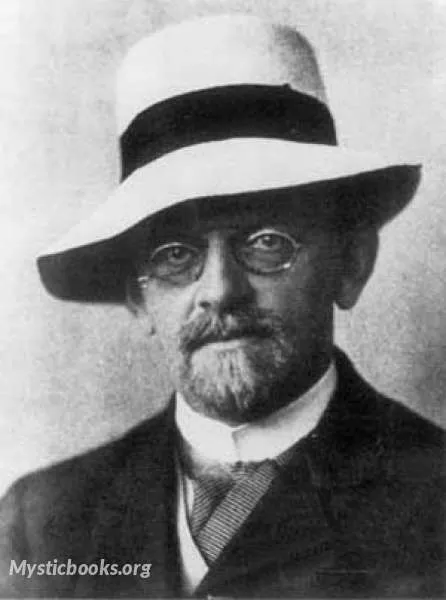
Timeline
Title
Country/Nationality
David Hilbert
David Hilbert was a German mathematician and one of the most influential mathematicians of the 19th and early 20th centuries. Hilbert discovered and developed a broad range of fundamental ideas in many areas, including invariant theory, the calculus of variations, commutative algebra, algebraic number theory, the foundations of geometry, spectral theory of operators and its application to integral equations, mathematical physics, and the foundations of mathematics (particularly proof theory).
Hilbert adopted and defended Georg Cantor's set theory and transfinite numbers. In 1900, he presented a collection of problems that set the course for much of the mathematical research of the 20th century.
Hilbert and his students contributed significantly to establishing rigor and developed important tools used in modern mathematical physics. Hilbert is known as one of the founders of proof theory and mathematical logic.
Hilbert, the first of two children and only son of Otto and Maria Therese (Erdtmann) Hilbert, was born in the Province of Prussia, Kingdom of Prussia, either in Königsberg (according to Hilbert's own statement) or in Wehlau (known since 1946 as Znamensk) near Königsberg where his father worked at the time of his birth.
In late 1872, Hilbert entered the Friedrichskolleg Gymnasium (Collegium fridericianum, the same school that Immanuel Kant had attended 140 years before); but, after an unhappy period, he transferred to (late 1879) and graduated from (early 1880) the more science-oriented Wilhelm Gymnasium. Upon graduation, in autumn 1880, Hilbert enrolled at the University of Königsberg, the "Albertina". In early 1882, Hermann Minkowski (two years younger than Hilbert and also a native of Königsberg but had gone to Berlin for three semesters), returned to Königsberg and entered the university. Hilbert developed a lifelong friendship with the shy, gifted Minkowski.
In 1884, Adolf Hurwitz arrived from Göttingen as an Extraordinarius (i.e., an associate professor). An intense and fruitful scientific exchange among the three began, and Minkowski and Hilbert especially would exercise a reciprocal influence over each other at various times in their scientific careers. Hilbert obtained his doctorate in 1885, with a dissertation, written under Ferdinand von Lindemann, titled Über invariante Eigenschaften spezieller binärer Formen, insbesondere der Kugelfunktionen ("On the invariant properties of special binary forms, in particular the spherical harmonic functions").
Hilbert remained at the University of Königsberg as a Privatdozent (senior lecturer) from 1886 to 1895. In 1895, as a result of intervention on his behalf by Felix Klein, he obtained the position of Professor of Mathematics at the University of Göttingen.
In 1892, Hilbert married Käthe Jerosch (1864–1945), who was the daughter of a Königsberg merchant, an outspoken young lady with an independence of mind that matched [Hilbert's]." While at Königsberg they had their one child, Franz Hilbert (1893–1969). Franz suffered throughout his life from an undiagnosed mental illness. His inferior intellect was a terrible disappointment to his father and this misfortune was a matter of distress to the mathematicians and students at Göttingen.
By the time Hilbert died in 1943, the Nazis had nearly completely restaffed the university, as many of the former faculty had either been Jewish or married to Jews. Hilbert's funeral was attended by fewer than a dozen people, only two of whom were fellow academics, among them Arnold Sommerfeld, a theoretical physicist and also a native of Königsberg. News of his death only became known to the wider world six months after he died.
Books by David Hilbert

Mathematical Problems
Lecture delivered before the International Congress of Mathematicians at Paris in 1900 and subsequently published in the Bulletin of the American Mathematical Society Vol. 8 (1902), 479-481.

Foundations of Geometry
The German mathematician David Hilbert was one of the most influential mathematicians of the 19th/early 20th century. Hilbert's 20 axioms were first proposed by him in 1899 in his book Grundlagen der Geometrie as the foundation for a modern treatment...